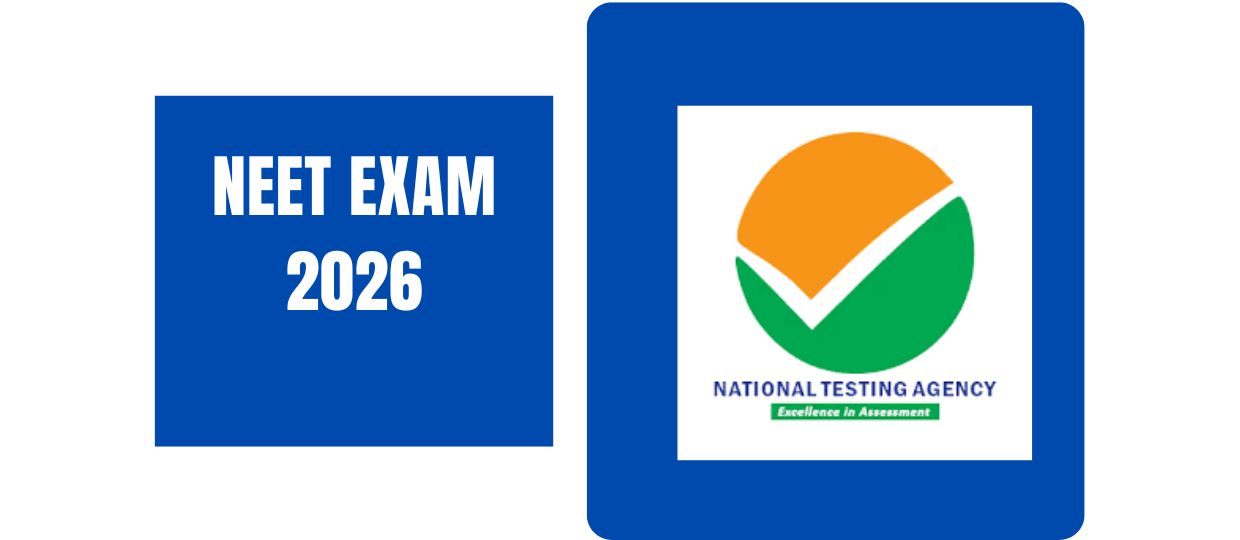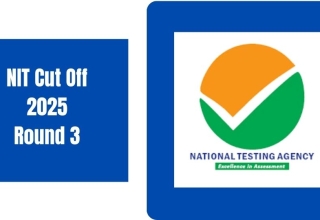
Preparing for the NEET 2026 exam is a vital milestone for students aspiring to build a career in the medical field. As a national-level entrance test, it requires dedicated preparation and strategic planning. With the right guidance, access to quality online courses, comprehensive study materials, and a thorough understanding of the syllabus and exam pattern, students can approach the exam with confidence. In this guide, we present a detailed overview of NEET UG 2026, covering eligibility criteria, syllabus, exam pattern, and effective preparation tips.
NEET Exam 2026 Overview
The National Eligibility cum Entrance Test (NEET) 2026 is a national-level entrance exam conducted by the National Testing Agency (NTA) for admission to undergraduate medical, dental, and AYUSH courses like MBBS, BDS, BAMS, BHMS, etc. It is mandatory for students who wish to take admission in government and private medical colleges across India. The NEET exam is held once a year in offline (pen-and-paper) mode and includes questions from Physics, Chemistry, and Biology based on the Class 11 and 12 NCERT syllabus. The NEET 2026 exam will be conducted in May 2026, and candidates must qualify it to participate in All India Quota (AIQ) and State Quota counselling rounds.
| NEET Exam 2026 Highlights | |
| Particulars | Details |
| Exam Name | NEET UG 2026 |
| Conducting Body | National Testing Agency (NTA) |
| Exam Level | National-level |
| Exam Mode | Offline (Pen and Paper) |
| Courses Offered | MBBS, BDS, AYUSH, B.V.Sc, BSc Nursing |
| Subjects | Physics, Chemistry, Biology (Botany + Zoology) |
| Total Questions | 180 |
| Total Marks | 720 |
| Exam Duration | 3 hours |
| Marking Scheme | +4 for correct, -1 for incorrect |
| Exam Frequency | Once a year |
| Official Website | The official NEET 2026 website has not been announced yet. |
NEET 2026 Syllabus
The National Medical Commission (NMC) has not officially announced the NEET 2026 Syllabus yet. Currently, the syllabus for NEET 2025 is being followed, which is the same as the syllabus used in NEET 2024 with no major changes. Students preparing for NEET 2026 can start their preparation based on the NEET 2025 syllabus until the official 2026 syllabus is released. The syllabus includes topics from Class 11 and Class 12 Physics, Chemistry, and Biology, aligned with the standard NEET exam format. Understanding the detailed syllabus provided by the NMC is crucial for thorough preparation.
| NEET Syllabus 2026 – Subjects Wise Breakdown | ||
| Biology | Physics | Chemistry |
| Diversity of Living Organisms Change | Physics And Measurement | Some Basic Concepts of Chemistry |
| Structural Organization in Plants & Animals Change | Kinematics | Structure of Atom |
| Cell Structure and Function No Change | Laws Of Motion | Classification of Elements and Periodicity in Properties |
| Plant Physiology | Work, Energy, and Power | Chemical Bonding and Molecular Structure |
| Human Physiology | Rotational Motion | States of Matter: Gases and Liquids |
| Reproduction | Gravitation | Thermodynamics |
| Genetics & Evolution | Properties of Solids and Liquids | Equilibrium |
| Biology and Human Welfare | Thermodynamics | Redox Reactions |
| Biotechnology and its Applications | Kinetic Theory of Gases | Classification of Elements and Periodicity in Properties |
| Ecology and Environment | Oscillation and Waves | P-Block Elements |
| – | Electrostatics | d- and f-Block Elements |
| – | Current Electricity | Coordination Compounds |
| – | Magnetic Effects of Current and Magnetism | Purification and Characterisation of Organic Compounds |
| – | Electromagnetic Induction and Alternating Currents | Some Basic Principles of Organic Chemistry |
| – | Electromagnetic Waves | Hydrocarbons |
| – | Optics | Organic Compounds Containing Halogens |
| – | Dual Nature of Matter and Radiation | Organic Compounds Containing Oxygen |
| – | Atoms and Nuclei | Organic Compounds Containing Nitrogen |
| – | Electronic Devices | Biomolecules |
| – | Experimental Skills | Principles Related to Practical Chemistry |
NEET 2026 Exam Pattern
The NEET UG 2026 exam will follow a revised pattern, reverting to the pre-COVID format. The exam will be conducted in pen-and-paper mode (OMR-based), and candidates will mark their answers on the OMR sheet. It will consist of 180 compulsory multiple-choice questions (MCQs) divided across three subjects: Physics (45 questions), Chemistry (45 questions), and Biology (90 questions, with 45 each from Botany and Zoology).
The total duration of the exam will be 180 minutes (3 hours), with no additional time provided. Each correct answer will earn 4 marks, while 1 mark will be deducted for each incorrect answer, and unattempted questions will carry no marks. One key change for NEET UG is the removal of Section B, which previously included optional questions. This means that all 180 questions will be mandatory for candidates, ensuring a uniform and fair exam experience for all.
| NEET Exam Pattern 2026 Overview | |
| Exam Name | National Eligibility cum Entrance Test (NEET) |
| Conducting Body | National Testing Agency |
| Mode of the examination | Pen – Paper Mode |
| Duration of the exam | 3 hours (Updated) |
| Total Questions | 180 Questions (Previously 200 Questions) |
| Total Marks | 720 Marks |
| Question Type | MCQs |
| Marking Scheme | +4 marks for each correct answer-1 for each incorrect answer |
| NEET Languages | 13 (English, Hindi, Assamese, Bengali, Gujarati, Marathi, Tamil, Telugu, Oriya, Malayalam, Kannada, Punjabi and Urdu |
NEET 2026 Eligibility Criteria
Candidates must meet the eligibility criteria for NEET 2026, including age, educational qualifications, and nationality, to appear for the exam. Make sure to check all requirements before applying.
| NEET Eligibility Criteria 2026 | |
| Criteria | Details |
| Nationality | Indian Nationals, NRIs, OCIs, PIOs, and Foreign Nationals are eligible to apply. |
| Age Limit | Candidates must be at least 17 years old by December 31, 2026. No upper age limit as per the Supreme Court’s order. |
| Educational Qualification | Must have passed 10+2 or equivalent with Physics, Chemistry, Biology/Biotechnology, and English. |
| Minimum Marks in Qualifying Exam | General category: 50%, OBC/SC/ST: 40%, PwD: 45% |
| Number of Attempts | No limit on the number of attempts. |
| Year of Passing | Candidates who are appearing for their qualifying exam in 2025 are also eligible to apply. |
NEET 2026 Exam Date
The NEET UG 2026 exam is expected to be scheduled on the first Sunday of May 2026 i.e., May 3, 2026. NTA will release the NEET official Information Bulletin with the full exam schedule and important details.
| NEET 2026 Exam Dates | |
| Event | Dates |
| NEET 2026 Exam Date | 3 May 2026 (Expected) |
| NEET 2026 Admit Card Release | Updated Soon |
| Release of NEET 2026 Answer Key | Updated Soon |
| NEET 2026 Scorecard Availability | Updated Soon |
| NEET 2026 Exam Result | Updated Soon |
NEET 2026 Admit Card
NEET 2026 admit card is a crucial document required to appear for the exam. It is expected to be released a few days before the exam, likely in April 2026, on the official NEET website. Candidates must log in using their registration credentials to download the admit card. It contains important details such as the candidate’s name, roll number, exam center, date, and time of the exam. Carrying the admit card along with a valid photo ID is mandatory for entry into the examination hall.
NEET 2026 Result
NEET 2026 result will be declared online by the NTA on the official website after the exam and answer key release. The result includes the candidate’s total marks, subject-wise marks, percentile score, and All India Rank (AIR). Candidates can check their result by entering their roll number and other required credentials. The result is important for counselling and seat allocation in medical and dental colleges across India. Candidates who qualify the exam by meeting the cut-off criteria will be eligible to participate in the counselling process.
NEET 2026 Preparation Tips
With limited time left for the NEET 2026 exam, it’s crucial to adopt a focused and efficient approach. Here are some tips to maximize your preparation in the final stretch:
- Prioritize Topics: Focus on topics that carry more weight in the exam. For Physics, topics like Mechanics, Optics, and Electrodynamics are crucial. In Chemistry, Organic Chemistry and Physical Chemistry are high-yield. For Biology, focus on Genetics, Ecology, and Human Physiology.
- Revise NCERT Thoroughly: NCERT textbooks are the foundation for NEET, so revise them multiple times. Make sure to understand every concept, especially in Biology. Biology often comes directly from NCERT, and focusing on it can significantly improve your score.
- Time Management in Practice: Practice solving questions within the time limit. You need to work on your speed and accuracy to ensure you can complete the paper on time. Aim to solve 180 questions within 3 hours.
- Take Mock Tests Regularly: Simulate the exam environment by taking regular mock tests. Focus on understanding your mistakes and work on improving those areas. Make it a habit to review each test thoroughly.
- Focus on Weak Areas: In the final stage, it’s important to strengthen weak areas. Identify topics where you score the least and dedicate specific time to improve those. But don’t completely neglect your strengths, maintain balance.
- Daily Practice of Previous Year’s Questions (PYQs): Go through NEET’s past five years of question papers. This helps you understand the exam pattern and frequently asked questions. Practice them to gain confidence in your knowledge.
- Master Shortcuts and Tricks: Physics often has tricky calculations. Learn time-saving shortcuts for calculations. Similarly, mastering chemical reaction mechanisms in Organic Chemistry can help you save time during the exam.
- Active Revision of Formulas and Diagrams: Create quick revision notes, especially for Physics and Chemistry formulas, and Biology diagrams. These notes 4 serve as a reference during the last days before the exam.
NEET 2026 Preparation FAQs
Ideally, NEET preparation should begin from Class 11 itself, as the syllabus includes both Class 11 & 12 NCERT concepts. Starting early gives you enough time for concept clarity and practice.
The NEET syllabus covers Physics, Chemistry, and Biology from NCERT Class 11 & 12. Any updates by NMC (National Medical Commission) will be released in the official notification.
On average, 6–8 focused hours per day are recommended for aspirants. Consistency and revision are more important than just the number of hours.
Mock tests and previous year papers are crucial for understanding the exam pattern, time management, and analyzing your strengths & weaknesses.
As of now, NEET is an offline (pen-paper) exam with 200 questions (180 to be attempted). Any updates for 2026 will be officially announced by NMC/NTA.
Mock tests and previous year papers are crucial for understanding the exam pattern, time management, and analyzing your strengths & weaknesses.



